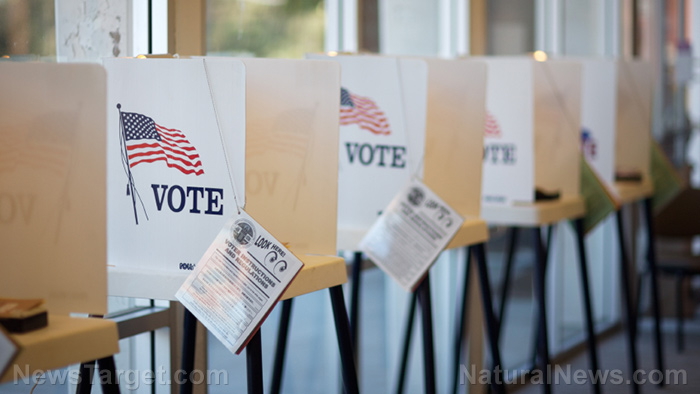Michigan judge rules secretary of state VIOLATED STATE LAW when she issued new rules regarding absentee balloting
03/18/2021 / By Arsenio Toledo

A judge in Michigan ruled that Democratic Secretary of State Jocelyn Benson violated the law when she issued new rules regarding absentee balloting.
Benson issued an order right before the 2020 election that allowed Michigan’s clerks to presume that signatures on absentee ballots are valid if they have “redeeming qualities.” If the signature in the state’s record bore “slight similarities” with the signatures on absentee ballots, the counter should decide that the voter’s signature is, in fact, valid.
State Court of Claims Judge Christopher Murray said this order was invalid. Benson did not go through the proper rule-making process that would involve the State Legislature when she issued the guidance.
How Benson issued the order was in direct violation of the state’s Administrative Procedures Act (APA). The act requires agencies like Benson’s Office of the Secretary of State to not just involve the state legislature but to go through months of public notices, drafts, impact analyses, public comment and public hearings.
Once the final version of the rules have been completed, they are submitted to the Michigan Legislature’s Joint Committee on Administrative Rules. The committee has 15 session days to take action on the rules before they are finalized.
Because Benson did not go through this process, clerks no longer need to comply with her rule regarding absentee ballots in future elections. (Related: MI judge orders Democrat Sec of State to release all communications with Dominion, Facebook, Apple, Amazon and Google.)
“The presumption is found nowhere in state law,” wrote Murray in his ruling. “The mandatory presumption goes beyond the realm of mere advice and direction, and instead is a substantive directive that adds to the pertinent signature-matching standards.”
The Michigan Republican Party and the county clerk for Allegan County, Robert Genetski, jointly filed their complaint regarding Benson’s directive prior to the election. The two parties claimed that Benson’s very loose signature standards were a gateway for fraud and allowed “invalid” ballots to be counted.
It should be noted that Murray did not rule on whether or not Benson’s directive violated state law, only that it violated the process that all new orders must follow when an agency wishes to create new rules.
“Nowhere in the state’s election law has the Legislature indicated that signatures are to be presumed valid, nor did the Legislature require that signatures are to be accepted so long as there are any redeeming qualities in the application or return envelope signature as compared with the signature on file,” wrote Murray in his ruling.
“Policy determinations like the one at issue – which places a thumb on the scale in favor of a signature’s validity – should be made pursuant to properly promulgated rules under the APA or by the Legislature.”
Republicans praise decision, but sad that it came too late to make a difference
Michigan Republicans have praised the court’s decision, but noted that the decision came too late to make a difference in the election.
“It was clear from the outset that the Secretary of State had violated election law by unilaterally directing local clerks to ignore their statutory obligation to compare absentee ballot signatures,” said Ted Goodman, director of communications for the state GOP.
“I’m glad the court sees Secretary of State Benson’s attempts at lawmaking for what they are – clear violations of her authority,” said Republican State Rep. Matt Hall in a statement. “If she wants to make changes like these, she needs to work with the Legislature or properly promulgate them through the laws we have on the books.”
Unfortunately for the state Republicans, Murray also rejected a request for additional audits to look at what effect Benson’s directive had on the election. Murray argued that this is because the state constitution only speaks to “election results,” not the process by which the election is conducted. The manner by which an audit is conducted is also left to the purview of the secretary of state.
“There is no support in the statue for plaintiffs to demand that an audit cover the subject of their choosing or to dictate the manner in which an audit is conducted,” wrote Murray.
Because of Benson’s directive, less than one percent of the more than 3.3 million absentee ballots cast in Michigan were rejected by local election clerks, or around 15,300 ballots. For comparison, during the August 2020 primary elections, nearly 11,000 mail-in ballots were rejected.
Follow VoteFraud.news for more news and information related to elections and election frauds.
Sources include:
Tagged Under: absentee ballots, ballot fraud, corruption, democrats, election fraud, elections, fraud, Jocelyn Benson, mail-in ballots, Michigan, Republicans, rigged, vote fraud
RECENT NEWS & ARTICLES
COPYRIGHT © 2017 CORRUPTION NEWS




















